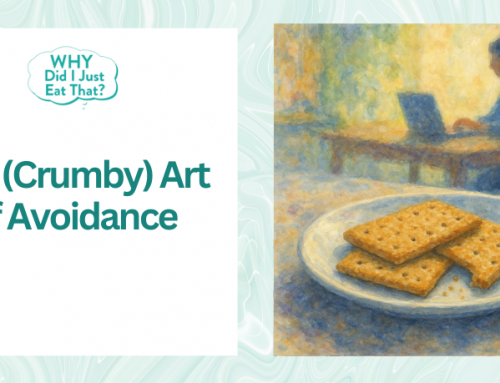In our fast-paced world, where diet culture and external expectations often drown out the natural signals our bodies send us, it’s easy to lose touch with our innate ability to recognize hunger and fullness cues. I believe that reconnecting with these signals is not just about nutrition—it’s about self-care, self-trust, and honoring your body’s wisdom. In this post, we’ll explore what hunger and fullness cues are, how they contribute to intuitive eating, and practical suggestions for tuning into these signals.
What Are Hunger and Fullness Cues?
Hunger and fullness cues are the body’s natural signals that tell us when we need to eat and when we’ve had enough. Hunger can manifest in various ways, such as a growling stomach, low energy, difficulty concentrating, or even irritability. Fullness, on the other hand, is the feeling of satisfaction and comfort after eating, indicating that our body’s energy needs have been met.
These cues are like your body’s internal compass, guiding you to nourish yourself when needed and to stop when you’ve had enough. Unfortunately, many of us have been conditioned to ignore these signals, whether due to restrictive dieting, emotional eating, or simply feeling too busy to listen to our bodies.
How Hunger and Fullness Cues Contribute to Intuitive Eating
Intuitive eating is a practice that encourages you to trust your body and its signals rather than relying on external rules about what, when, and how much to eat. By listening to your hunger and fullness cues, you can foster a more positive and balanced relationship with food.
When you tune into hunger cues, you’re able to nourish your body when it genuinely needs fuel, rather than eating out of habit, boredom, or emotional distress. Similarly, recognizing fullness cues helps you to stop eating before discomfort sets in, reducing the likelihood of overeating or experiencing guilt after meals.
This process of attunement can be incredibly liberating, as it allows you to break free from the cycle of dieting and instead develop a more trusting and compassionate relationship with your body.
Suggestions for Listening to Your Hunger and Fullness Cues
- Practice Mindful Eating: Slow down during meals and take the time to notice how your body feels before, during, and after eating. Pay attention to the taste, texture, and satisfaction that each bite brings. This mindfulness helps you stay connected to your body’s signals.
- Check-In with Yourself: Before reaching for food, pause and ask yourself, “Am I truly hungry?” If you’re unsure, try drinking a glass of water or waiting a few minutes to see if the hunger persists. If it does, honor that signal by eating something nourishing.
- Recognize Emotional Hunger: Sometimes, we eat not because we’re physically hungry, but because we’re seeking comfort, distraction, or relief from stress. Learning to differentiate between emotional and physical hunger can help you address your needs in a more appropriate way, whether it’s through a comforting activity, talking to a friend, or engaging in relaxation techniques.
- Respect Your Fullness: Pay attention to signs of fullness, such as a feeling of satisfaction, a decrease in the enjoyment of food, or a sense of comfort. It’s okay to leave food on your plate if you’ve had enough. Trust that your body knows when it has been nourished.
- Honor Your Hunger Without Shame: Hunger is a natural and vital signal from your body that it needs nourishment. There’s no need to feel guilt or shame about feeling hungry, whether it’s at an unexpected time or after a previous meal. Trust your body’s wisdom and respond to hunger with compassion. By honoring your hunger, you’re respecting your body’s needs and supporting your overall well-being.
Takeaway
Reconnecting with your hunger and fullness cues is an act of self-compassion. It’s about trusting your body, honoring its needs, and letting go of the guilt and rules that so often accompany eating. By practicing mindfulness and tuning into these signals, you can foster a healthier and more intuitive relationship with food—one that supports both your physical and emotional well-being. Remember, your body is wise, and by listening to it with kindness and respect, you can nourish yourself in a way that feels balanced and fulfilling.




